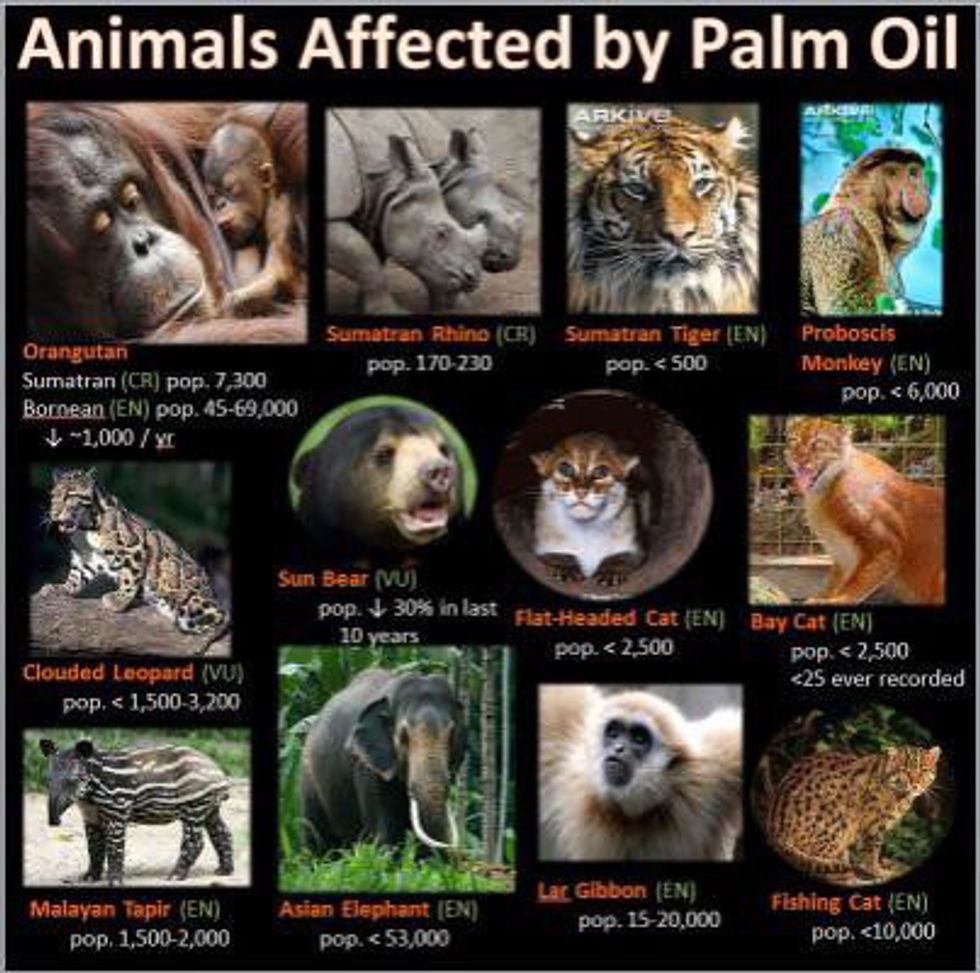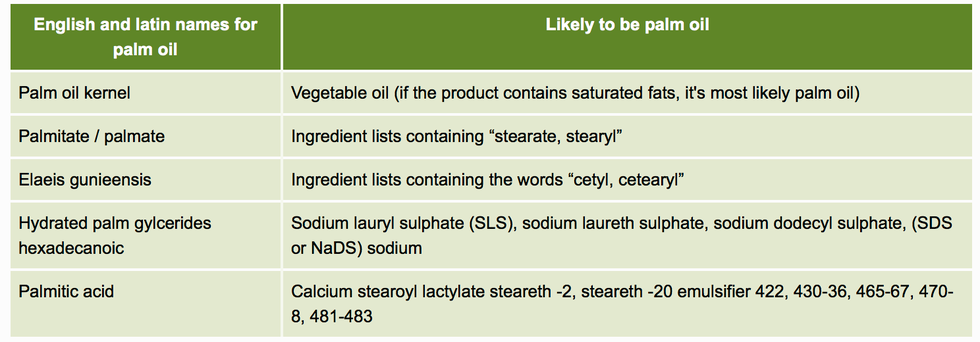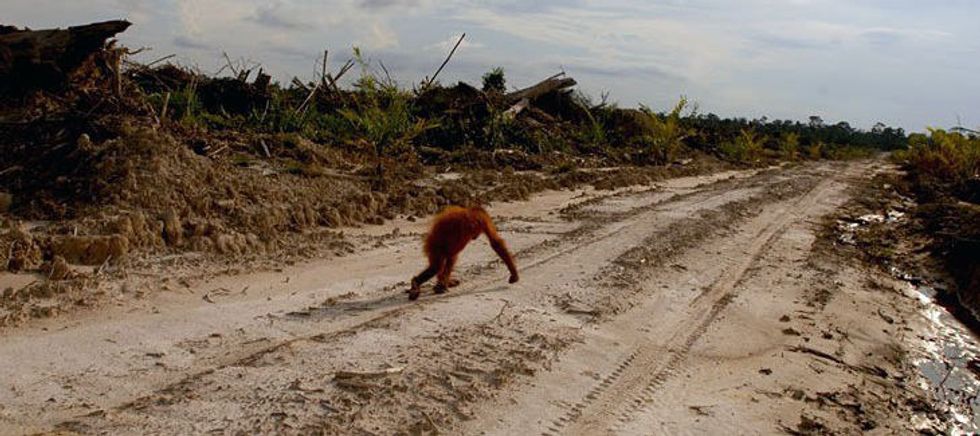Think about your favorite product.
This product can be anything...maybe you thought of your favorite soap, your favorite ice cream, or even your favorite lipstick. In hindsight, these products seem harmless. However, they may contain an extremely harmful ingredient: palm oil.
Some of you may already be aware of what palm oil is, but for those of you who don't, it's a popular vegetable oil used in a lot of products, ranging from margarine to biofuel. It is derived from the oil palm tree, usually grown in tropical areas, most notably Indonesia and Malaysia. Now, you may be thinking, vegetable oil...what's the problem? Well, it turns out that palm oil is a major problem, and the practice is continuously linked to deforestation, climate change and habitat degradation.
In short, oil palm trees are planted on large-scale plantations, after they are cleared from forest that is essential to the ecosystem and everything that lives in it. According to Rainforest Rescue, every hour, rainforest area the equivalent of 300 soccer fields is being destroyed. As stated, Indonesia and Malaysia are the number one producers of palm oil, and currently, Indonesia has over 9 million hectares of palm oil plantations, which is an area similar to the size of Maine. As you can imagine, an extreme amount of rainforest is being destroyed for palm oil, and estimates even state that, if practices such as these continue, 98 percent of Indonesian forest may be destroyed by 2022.
Likewise, because the forest is being destroyed, suitable habitat for many of our favorite species is being lost everyday. Because of this, these species are at risk of being lost as well. The Sumatran orangutan, Sumatran tiger, Sumatran rhinoceros, Sun bear, Asian elephant, Clouded leopard and Proboscis Monkey are being killed and put in extreme danger because of palm oil. These animals can be killed in the deforestation process, such as when orangutans are buried alive when they clear out the plantations. Other animals wander into villages after their habitat and food is destroyed, and find themselves walking to their deaths, as local villagers kill them upon arrival. Poachers are also following the roads made my palm oil plantation workers in the forest, where they wait for the now homeless animals to come along, then either kill them for their valuables or sell them into the pet trade.
You may be thinking, this situation is pretty grim, but I don't buy products with palm oil. However, you probably do. Palm oil is found in over 50 percent of products, and even if you read the ingredients, most of the time, they will not read "palm oil." More often that not, palm oil is disguised under false pretenses. It can be disguised in ingredients that can vary from just plain and simple vegetable oil, to stearate and sodium laureth sulphate. Below is a chart showing all of the ingredients that palm oil is most likely in.
Check any of the products that you have sitting around at home, and I guarantee you that at least some of them will contain palm oil. It's a sad realization to have, I know, but it's our reality. We are fueling deforestation, habitat destruction and even extinction with our everyday products.
However, not all hope is lost. You can stop contributing to the disastrous effects that palm oil has by refraining from buying products with palm oil in them. However, this may not be easy for some people, so I urge you to support deforestation-free palm oil. This palm oil is different than your normal palm oil, because it does not require clear cutting of forest to plant oil palm trees. This palm oil is harvested from already deforested plantations, which are simply reused. If you support companies that have already pledged to go deforestation-free, such as Nestlé and Unilever, you will create a demand for more companies to go deforestation-free, allowing us to change the grim situation that we are in. There's even an app, called PalmSmart, that allows you to scan product barcodes and find out if they contain palm oil, making shopping a lot easier.
Also, as a side note, deforestation-free palm oil and sustainable palm oil are not the same thing. Sustainable palm oil is approved by the Roundtable on Sustainable Palm Oil (RSPO), but sadly, sustainable does not always mean deforestation-free. So, although sustainable palm oil is a good first step towards helping the situation, it is not the best that we can do, nor that can be done by companies around the world.
I'm not trying to ruin your day or berate you, I'm just trying to warn everyone that we need to change our ways, or else we could be facing more trouble than we are already in. I understand that some of you, if you are still reading, will not change your ways at all, but just please think about the situation that we are in. We may lose an entire rainforest and all that lives in it, including the just declared critically endangered orangutan. Palm oil has huge detrimental impacts that are already affecting us in current times, and it will surely affect us in the future if we continue on like this...please tell your friends about this issue, refrain from buying products with palm oil, and support companies that have pledged to go deforestation-free.
I believe it's time we realize that we need to stop cutting down the forest and creating homeless animals for a product that we can easily go without. Join the movement and palm off palm oil.
























